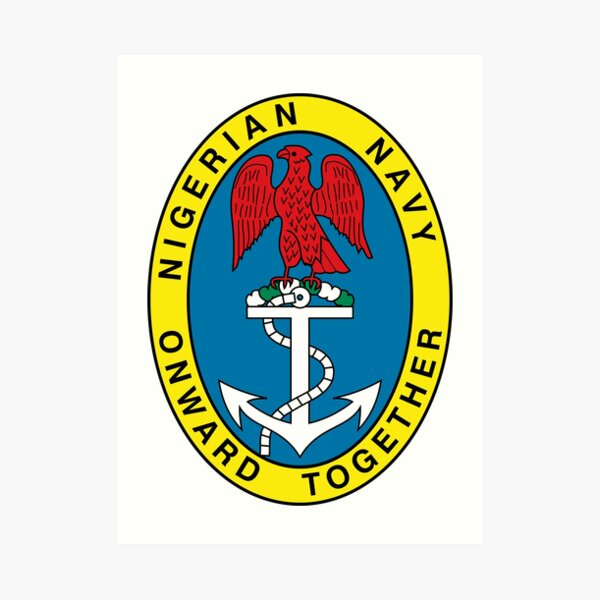The Nigerian Navy’s Struggle for Effective Maritime Security: A Funding Crisis
The Nigerian Navy faces a critical challenge in its mission to secure the nation’s vast maritime domain: a severe lack of funding. This financial constraint significantly hampers the Navy’s ability to effectively patrol and protect Nigerian waters, impacting both security and economic activities. The stark reality of this situation was highlighted by Rear Admiral Gregory Oamen, Flag Officer Commanding Western Naval Command, during the 3rd MARAN Annual Lecture. He revealed the staggering cost of deploying a single warship, the NNS Thunder, for a year, a sum reaching N1.2 billion. This exorbitant expense underscores the immense financial burden placed on the Navy, limiting its operational capacity and jeopardizing maritime security.
The Navy’s predicament goes beyond the mere cost of fuel. While the Navy possesses a sufficient number of vessels to patrol the expansive waters, the logistical hurdles posed by inadequate funding render this fleet largely ineffective. Maintaining and deploying these ships require substantial financial resources, which the Navy currently lacks. The consequence is a reduced presence at sea, leaving vast stretches of Nigerian waters vulnerable to illicit activities. This limited presence restricts the Navy’s ability to respond swiftly and effectively to incidents, leaving crucial areas exposed to piracy, smuggling, and other maritime crimes. Admiral Oamen emphasized the inadequacy of having only one vessel deployed per command, highlighting the need for increased presence to effectively cover the vast maritime domain.
The scarcity of funds also hinders the Navy’s efforts to enhance maritime domain awareness. While the Navy is actively pursuing technological solutions, such as the acquisition of drones, to improve surveillance and monitoring, these initiatives remain hampered by funding constraints. The procurement and operation of these advanced technologies require significant investment, which the Navy is currently unable to afford. This delay in acquiring crucial surveillance capabilities further compromises the Navy’s ability to detect and respond to threats, leaving the nation’s maritime interests exposed.
Despite these limitations, the Nigerian Navy has demonstrably committed to ensuring maritime security, achieving considerable success despite the odds. In 2022 alone, naval patrols logged an impressive 36,609 hours and 40 minutes, leading to the arrest of 191 suspects involved in maritime crimes. This figure was followed by 80 arrests in 2023. Furthermore, between 2015 and 2021, the Navy diligently apprehended and handed over 333 vessels involved in various infractions to the appropriate authorities. These efforts have resulted in several successful prosecutions of piracy cases under the Suppression of Piracy and Other Maritime Offences (SPOMO) Act. These achievements, accomplished despite severe financial constraints, underscore the dedication and resilience of the Nigerian Navy.
The positive impact of improved maritime security, even with limited resources, is evident in the increasing number of ship calls at Nigerian ports. Weekly ship calls rose from 123 in 2021 to 145 in 2023, indicating growing confidence in the safety and security of Nigerian waters. This increase in maritime activity has contributed to a significant boost in the fishing sector, with the gross domestic product rising from N12 billion to N15 billion within the same period. These positive economic indicators demonstrate the tangible benefits of enhanced maritime security, further emphasizing the importance of investing in the Navy’s capabilities.
However, the specter of war risk insurance continues to loom over Nigerian maritime trade, despite the Navy’s commendable efforts. The Joint War Risk Committee, based in London, still imposes a war risk premium on vessels operating in Nigerian waters. This premium, a consequence of perceived risks, adds to the cost of shipping and negatively impacts the competitiveness of Nigerian ports. This lingering perception of risk, despite the significant improvements in maritime security, highlights the need for sustained efforts and increased investment to fully eradicate the threat of piracy and assure international stakeholders of the safety of Nigerian waters. Temisan Omatseye, a former Director-General of the Nigerian Maritime Administration and Safety Agency, emphasized this point, highlighting the disparity between the reality of improved security and the persistent perception of risk. This calls for a concerted effort to communicate the Navy’s successes and advocate for the removal of this unnecessary financial burden on Nigerian maritime trade.
The Nigerian Navy’s struggle for effective maritime security underscores the crucial link between adequate funding and national security. The current financial constraints severely hamper the Navy’s ability to protect Nigeria’s vast maritime domain, impacting both security and economic prosperity. Investing in the Navy, providing adequate resources for operations, and enhancing technological capabilities are essential steps to ensuring the safety and security of Nigerian waters, promoting economic growth, and safeguarding the nation’s maritime interests. The Navy’s commendable efforts, despite the odds, highlight the potential for even greater success with increased support and investment. Addressing the funding crisis is not just a matter of supporting the Navy; it is a matter of investing in Nigeria’s future.


